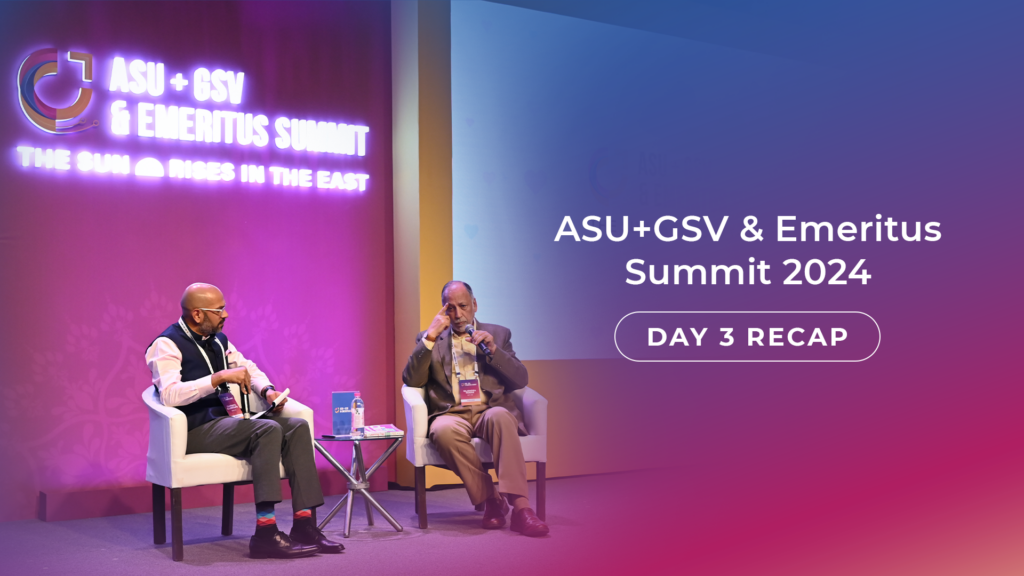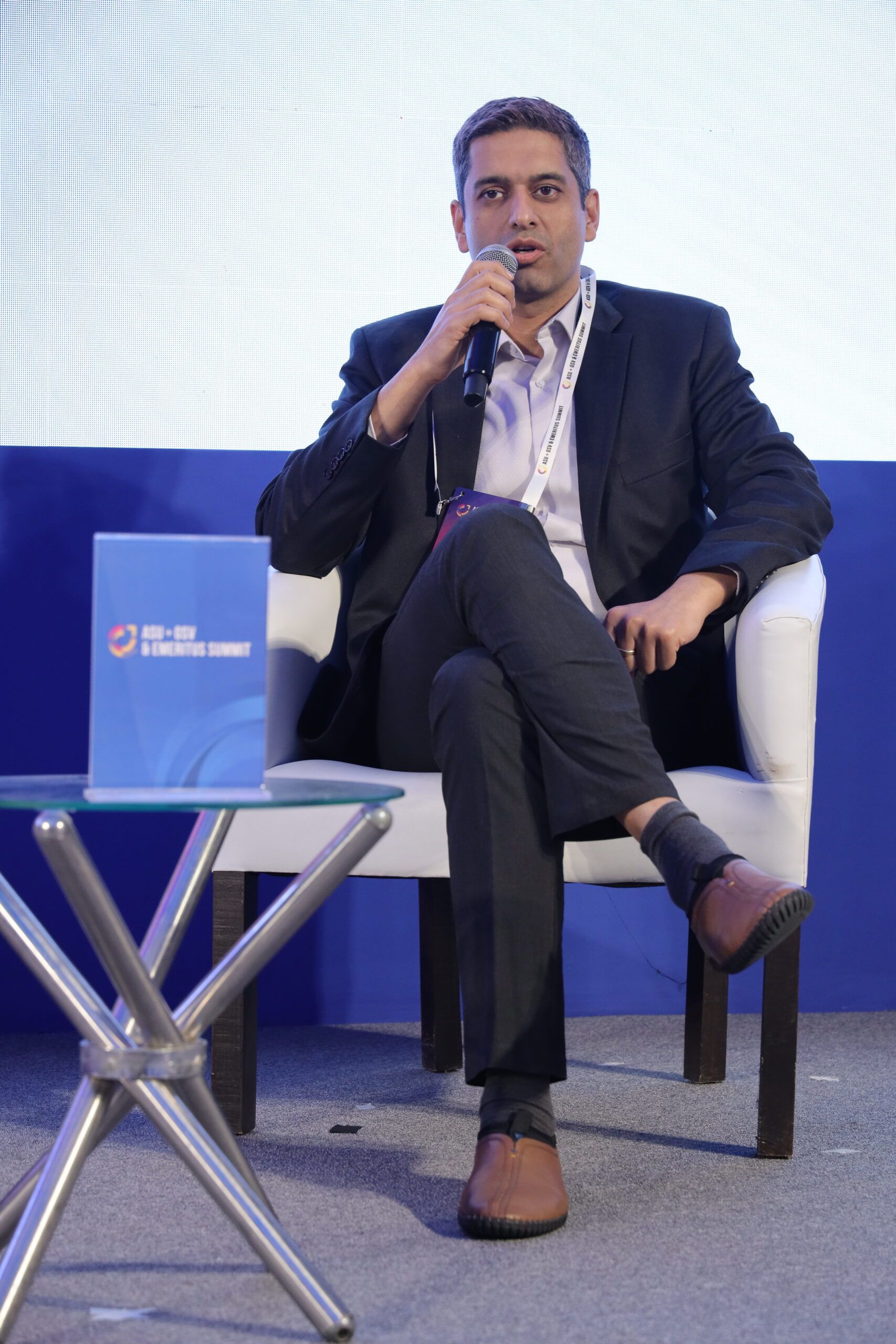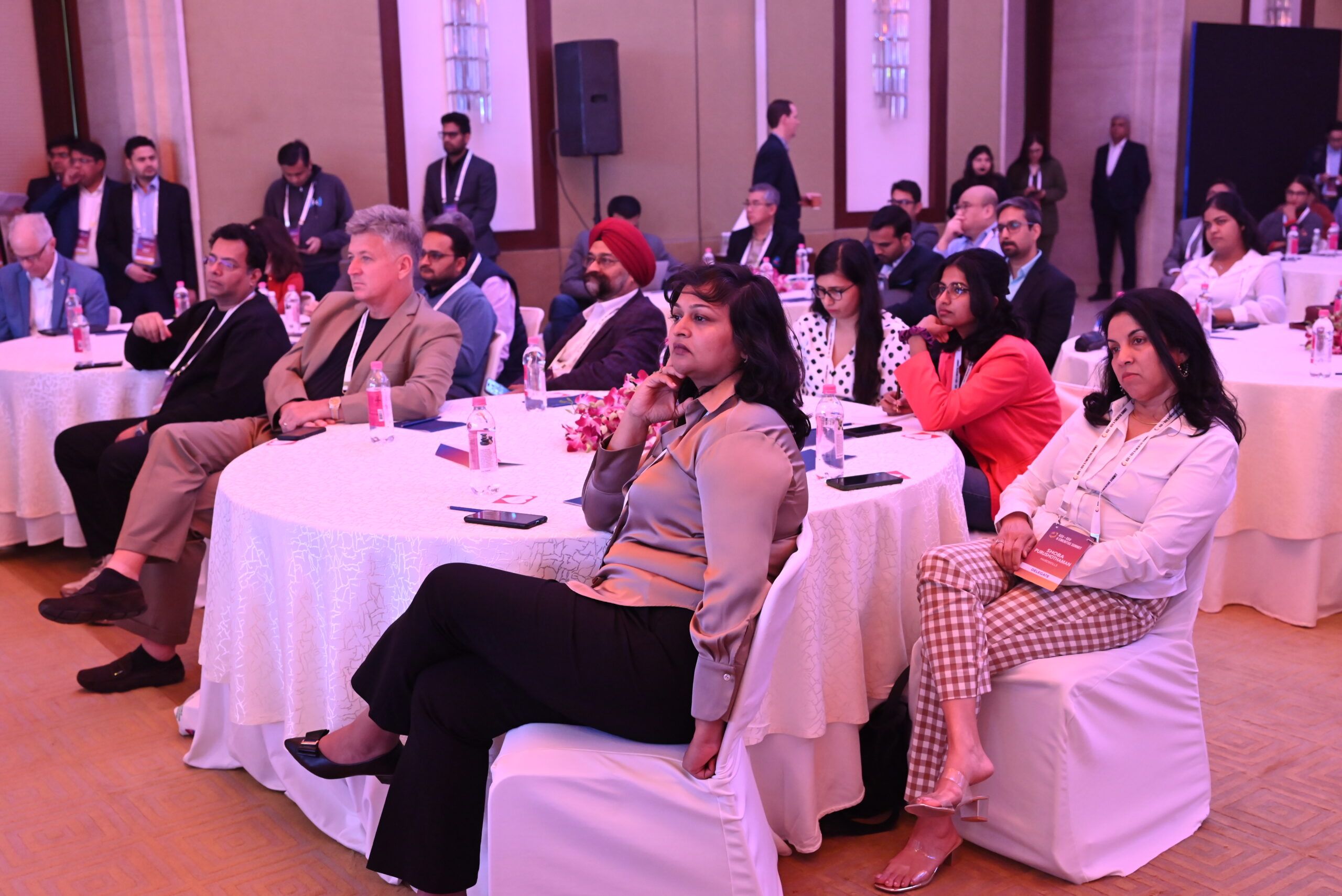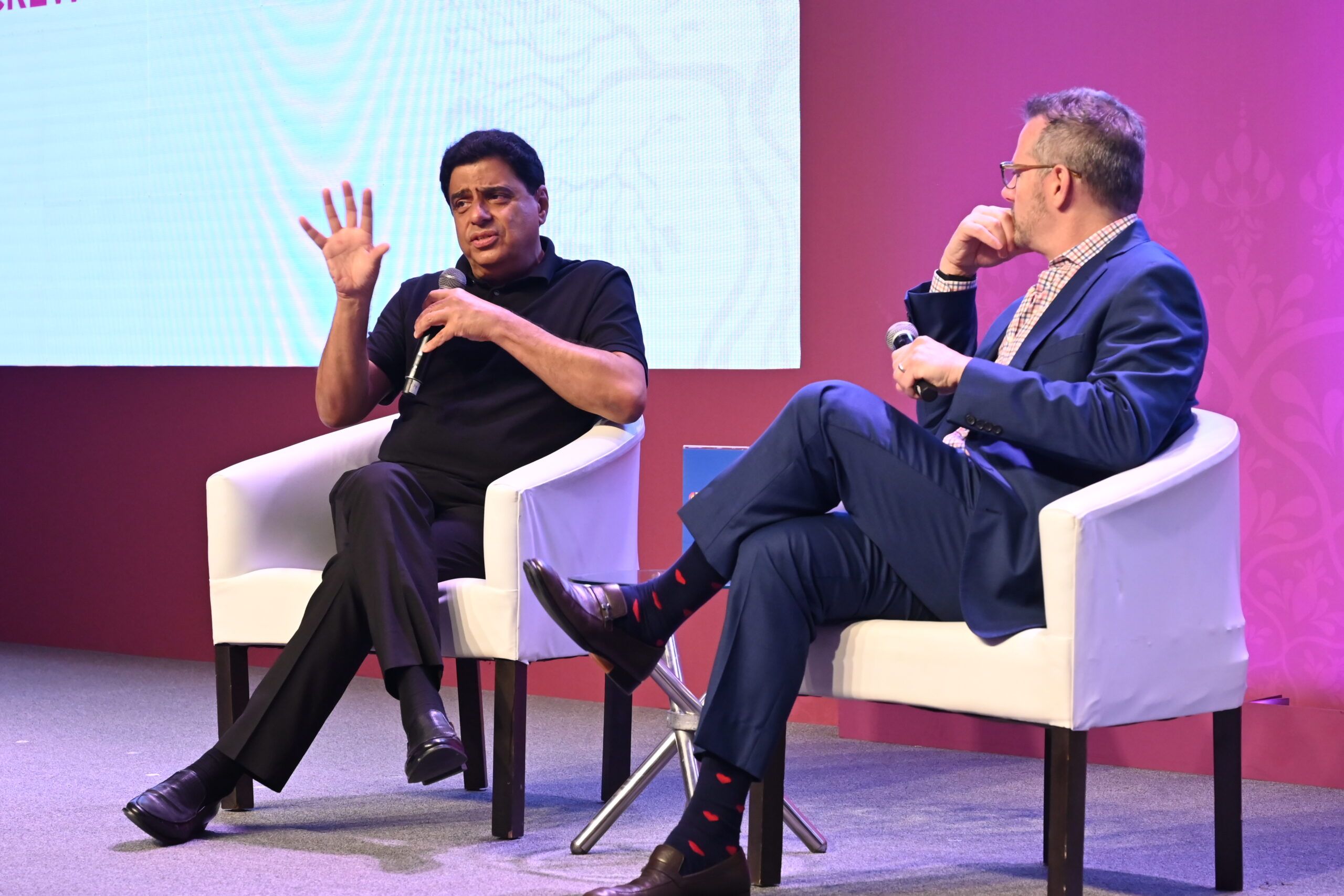Indian Education is Going Global: Top Takeaways From Day 3 of the ASU+GSV and Emeritus Summit

“To disrupt, you need innovation, and for innovation, you need frugality,” said Ronnie Screwvala, Executive Chairman and Co-Founder of upGrad, during the ASU+GSV & Emeritus Summit 2023 Day 3 in Gurgaon. This opening session set the premise for the discussions to follow that centered mainly around entrepreneurship, education as a business, and investments in edtech as a section. As the participants talked shop, investments and the branding of Indian education in the global market came out as the two dominant themes of the day.
Investments in Edtech
As the summit closed after three incredible days of panel discussions, fireside chats, and momentum among edupreneurs, investors, and university partners, here are the critical financial trends we spotted on ASU+GSV & Emeritus Summit 2023 Day 3.
1. Focus on Innovation and Not Investment
“Even if you have raised 400 million, venture capitalists must always ask the right questions,” emphasized Ronnie Screwvala, Executive Chairman and Co-Founder of upGrad, during the ASU+GSV & Emeritus Summit in Gurgaon. Reflecting on his entrepreneurial journey, Screwvala highlighted the importance of innovation rooted in frugality. In essence, necessity is the mother of invention, and a lack of plentiful investment can thus be a good thing for the edtech industry.
Throughout the session, Screwvala emphasized the balance between accountability, storytelling, and credibility in building successful ventures, emphasizing the significance of peer-to-peer learning and powerful storytelling over traditional advertising methods. Moreover, he redefined the concept of IPOs as liquidity events rather than exit strategies, emphasizing the need for succession planning and the selection of competent CEOs.
2. The Edtech Bubble has Burst, But This, Too Shall Pass
That is the sentiment expressed by Rajendra Pawar, Chairman and Co-Founder of NIIT.
In a fireside chat with Chaitanya Kalipatnapu, Co-Founder of Emeritus. “2020-21 witnessed a surge in edtech focus. Everyone had FOMO, from the learners to the providers and investors,” he said. This is because when COVID-19 happened, education as we know it stopped completely. And at that point, a solution that was still being built was what everyone switched to.
In the context of COVID-19, there was a lot of irrational exuberance” in the market that the veteran edupreneur cautioned against. Pawar’s contemplation encapsulated the industry’s swift adaptation amidst the COVID-19 disruption. Emphasizing the sudden transition to online education, he highlighted the necessity of adaptability. Integrity and accountability emerged as Pawar’s focal points, urging stakeholders to prioritize genuine value creation over fleeting gains. “Value is tested only when there is a violation,” he emphasized, underlining the importance of maintaining ethical standards in the ever-evolving landscape of education.
ALSO READ: The Sun Rises in the East: Indian and Global Edtech Leaders Come Together in Gurgaon
3. It’s a Buyer’s Market, and the Valuations Stand Corrected
 In 2022, edtech was the third on the mergers and acquisitions table behind e-commerce and enterprise tech. But despite this hyper-consolidation, investments in edtech dropped by 70% in 2023. And that inspired the panel discussion between Pranjal Kumar, CFO of Emeritus, and Vishruta Kaul, Partner at Trilegal.
In 2022, edtech was the third on the mergers and acquisitions table behind e-commerce and enterprise tech. But despite this hyper-consolidation, investments in edtech dropped by 70% in 2023. And that inspired the panel discussion between Pranjal Kumar, CFO of Emeritus, and Vishruta Kaul, Partner at Trilegal.
In response to Kaul’s question on whether the edtech industry has decided to build instead of buy, Kumar said, “2022 was the year of diversification. Companies were acquiring other companies for the skillsets they didn’t have, venturing into new geographies, or foraying a new sector.” He also explained that this was the time of consolidation, and the valuations now stand corrected.
“The rules of the game have changed, but it’s definitely a buyer’s market,” he said encapsulating the mood of the market.
Taking Indian Education to the World
1. India Can be a Global Education Destination, but we Have to Grow as a Team
In the session titled “Internationalizing Indian Education – The Experience of VIT,” Mohan Kannegal, CEO of Emeritus India, engaged in a compelling dialogue with Sekar Viswanathan, Vice President of VIT, delving into the institution’s strategies and challenges in attracting both students and faculty on a global scale. Addressing cultural differences and catering to diverse student needs, Viswanathan highlighted the imperative for India to market itself aggressively as an education destination. He said, “India has immense potential as an English-speaking nation with affordable tuition to become an education destination. We need to be more aggressive with our marketing in pitching India as a destination to the world.” Expressing optimism for the future, he emphasized the positive impact of foreign institutions entering India, foreseeing enhanced competition leading to elevated educational standards for all institutions.
2. India is a Great Market for Global Universities Because of the Value Placed on Education
The session on “Universities Scaling in the Global Market” provided a comprehensive exploration of the evolving dynamics between international and Indian higher education institutions, with valuable insights from Eric Hamberger of the Wharton School, Carissa Little of Stanford University, and Isabelle Huault of Emlyon Business School.
Hamberger highlighted the changing perspective on scaling, emphasizing the impact of stakeholder activism and geopolitical factors alongside the importance of solidifying partnerships and understanding local markets. Little echoed the sentiment, expressing Stanford’s keen interest in India’s education market, citing the country’s strong value for education and the significant presence of Indian learners at Stanford. She emphasized the need for stronger partnerships and acknowledged language challenges while recognizing the immense opportunity India presents.
Meanwhile, Huault emphasized the need for dynamic program hybridization and strategic partnerships to meet the diverse needs of the Indian economy and student population. Together, these insights highlighted the importance of intentional expansion, faculty-driven initiatives, and collaborative partnerships in navigating the global education landscape.
As Little aptly stated, “India is such a wonderful market for us because there’s a value placed on education like none other in the world.” This session provided a nuanced understanding of the opportunities and challenges inherent in internationalizing Indian education.
3. India Needs to Step Up Because the Competition is Global
In a panel discussion titled, Building Bridges: Australian Universities Leading Transnational Educational in India, we heard the amazing story of Deakin University and its collaboration with India. During this session moderated by Pooja Jayaram, SVP & Head of Partnerships – APAC / Australia at Emeritus, we heard a heart-warming account of collaborative growth and exchange between students from the sub-continent and the Australian university from Ravneet Pawha, Vice President -Global Alliances & CEO -South Asia.
Michelle Wade, Commissioner – South Asia State Government of Victoria, Australia, who was also on this panel made an interesting observation about how functioning in the Indian market requires a high risk appetite. She also called out that India needed to up its education game to compete with the best in the world.
Let’s Move Towards a Brighter Future, Together
In wrapping up the dynamic discussions of ASU+GSV & Emeritus Summit’s Day 3, one conversation stood out vividly – the enlightening exchange with Ved Mani Tiwari, CEO of NSDC. Tiwari’s insights shed light on the profound significance of public-private partnerships, particularly exemplified by the unique structure of NSDC.
At the heart of NSDC’s model lies a balanced collaboration between the government and private entities, with a clear mandate to address not just the unemployment of school dropouts, but the broader spectrum of individuals transitioning through the education system. Tiwari emphasized the efficacy of this approach, highlighting the government’s majority stake coupled with private sector involvement as a recipe for success.
In essence, the conversation with Ved Mani Tiwari encapsulated the essence of the ASU+GSV & Emeritus Summit – a convergence of minds committed to driving meaningful change through innovation, collaboration, and shared vision.


